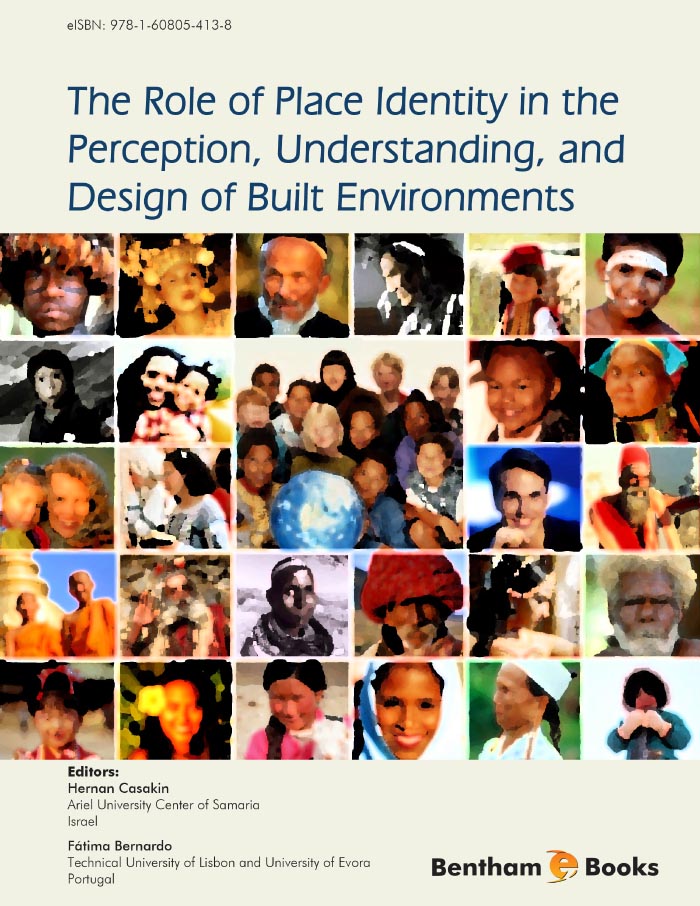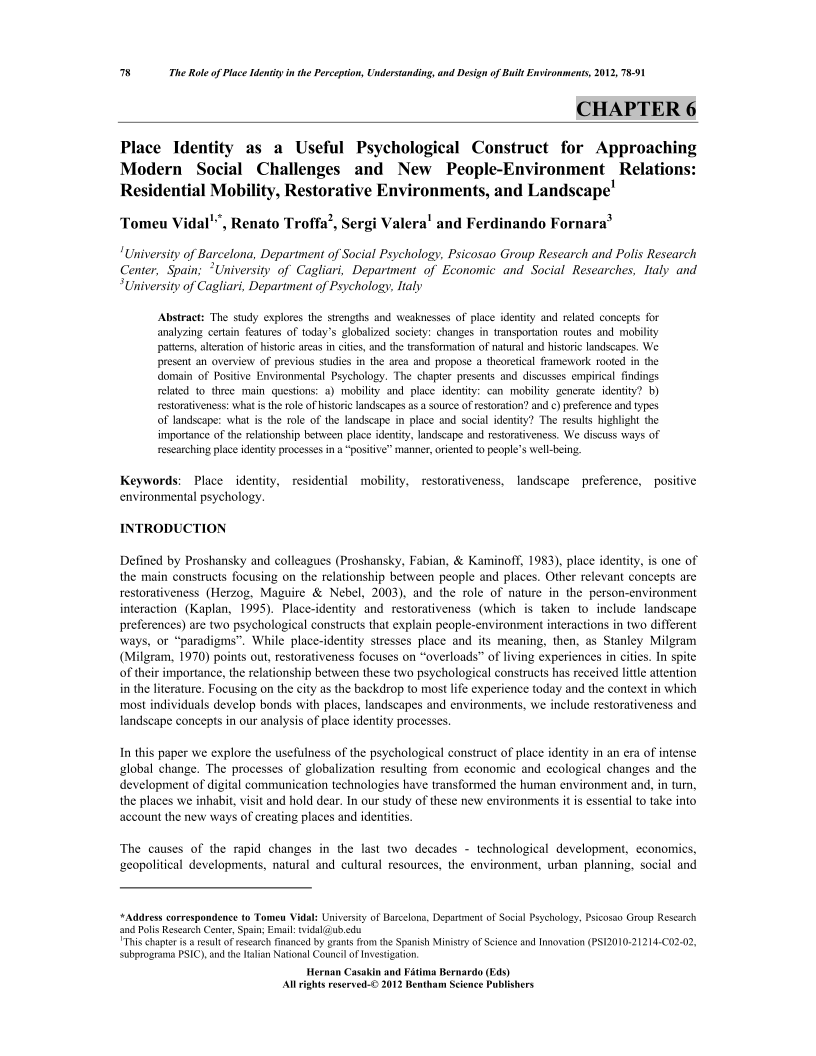Place Identity as a Useful Psychological Construct for Approaching Modern Social Challenges and New People-Environment Relations: Residential Mobility, Restorative Environments, and Landscape

- Authors: Tomeu Vidal1, Renato Troffa2, Sergi Valera3, Ferdinando Fornara4
-
View Affiliations Hide Affiliations1 University of Barcelona, Department of Social Psychology, Psicosao Group Research and Polis ResearchCenter, Spain 2 University of Barcelona, Department of Social Psychology, Psicosao Group Research and Polis ResearchCenter, Spain 3 University of Barcelona, Department of Social Psychology, Psicosao Group Research and Polis Research Center, Spain 4 University of Cagliari, Department of Psychology, Italy
- Source: The Role of Place Identity in the Perception, Understanding, and Design of Built Environments , pp 78-91
- Publication Date: July 2012
- Language: English
Place Identity as a Useful Psychological Construct for Approaching Modern Social Challenges and New People-Environment Relations: Residential Mobility, Restorative Environments, and Landscape, Page 1 of 1
< Previous page | Next page > /docserver/preview/fulltext/9781608054138/chapter-6-1.gif
The study explores the strengths and weaknesses of place identity and related concepts for analyzing certain features of today's globalized society: changes in transportation routes and mobility patterns, alteration of historic areas in cities, and the transformation of natural and historic landscapes. We present an overview of previous studies in the area and propose a theoretical framework rooted in the domain of Positive Environmental Psychology. The chapter presents and discusses empirical findings related to three main questions: a) mobility and place identity: can mobility generate identity? b) restorativeness: what is the role of historic landscapes as a source of restoration? and c) preference and types of landscape: what is the role of the landscape in place and social identity? The results highlight the importance of the relationship between place identity, landscape and restorativeness. We discuss ways of researching place identity processes in a "positive" manner, oriented to people's well-being.
-
From This Site
/content/books/9781608054138.chapter-6dcterms_subject,pub_keyword-contentType:Journal -contentType:Figure -contentType:Table -contentType:SupplementaryData105

